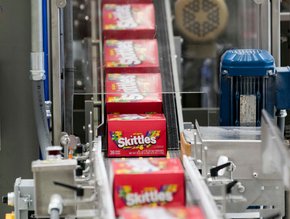EU agri-food trade reaches a new record within imports and exports in 2017, report states

The Agri-food trade report for 2017 has been released, highlighting that agri-trade has been increasing worldwide. The EU has become the largest global exporter (and importer) of agri-food products, with the top five importers – the EU, US, China, Japan and Canada driving agri-food export value.
“Exports of EU flagship products such as wines, spirits and infant food further increased from already very high levels. The major CAP reforms in the dairy and sugar sectors in the last three years have positioned EU producers in these sectors to better compete on international markets,” the report has stated.
With €138bn of exports and €117bn imports throughout 2017 (providing an increase of over 5%), demand is set to further grow, but remains threatened by ongoing geopolitical and economic forces.
The agri-food industry provides up to 44mn jobs in the EU, with agricultural food and feed products, covering up to 80% of all imports. Whilst the EU sources the majority of food imports from the US, China, Brazil and Argentina, outside of these countries, Indonesia and India make up to 28% and 22.9% of imports.
With this in mind, imports of oilcake, coffee and soybeans are sourced from Brazil. 66% of palm oil and kernel oil are provided by Indonesia and Malaysia. Brazil has been noted to buy European olive oil, vegetables, citrus fruit and wine.
See also
- 5-Star Luxury in Los Cabos with One & Only Palmilla
- FoodLogiQ announces blockchain pilot with industry leaders
- Minor International edges closer to NH Hotel Group takeover with €619mn deal for HNA Group stake
Dominant import products span coffee, tobacco and tropical fruits, such as bananas. Losses have been recorded for cocoa beans and sugar.
The top five destinations for EU agri-food exports - the US, China, Switzerland, Russia and Japan account for 40% of all EU exports.
Whilst the US remains one of the strongest exporters, Brazil has provided the strongest annual increase of 12%. China has also topped the list of importers with up to €10bn of products (+10.3%), totalling €103bn, and is the second most important export destination. EU exports to Russia have also risen by 15.9%
Wine and spirits dominate the basket of exported products, followed by infant food (dominated by China, as well as fresh and processed fruit and cereals). Chocolate and pig meat span over €5bn in exports (with China and Japan providing increased demand at 49%), whilst wine has been favoured by the US.
China has also become a key destination for Brazil’s exports at 28.8%, exporting high volumes of soybeans.
Brazil has been found to be the most important origin for EU agri-food imports, while Japan is a major export destination for the EU, exporting large volumes of pork, wine, cheese and olive oil. EU exports of cigars and cigarettes also rose by a staggering 108%, according to the report.






